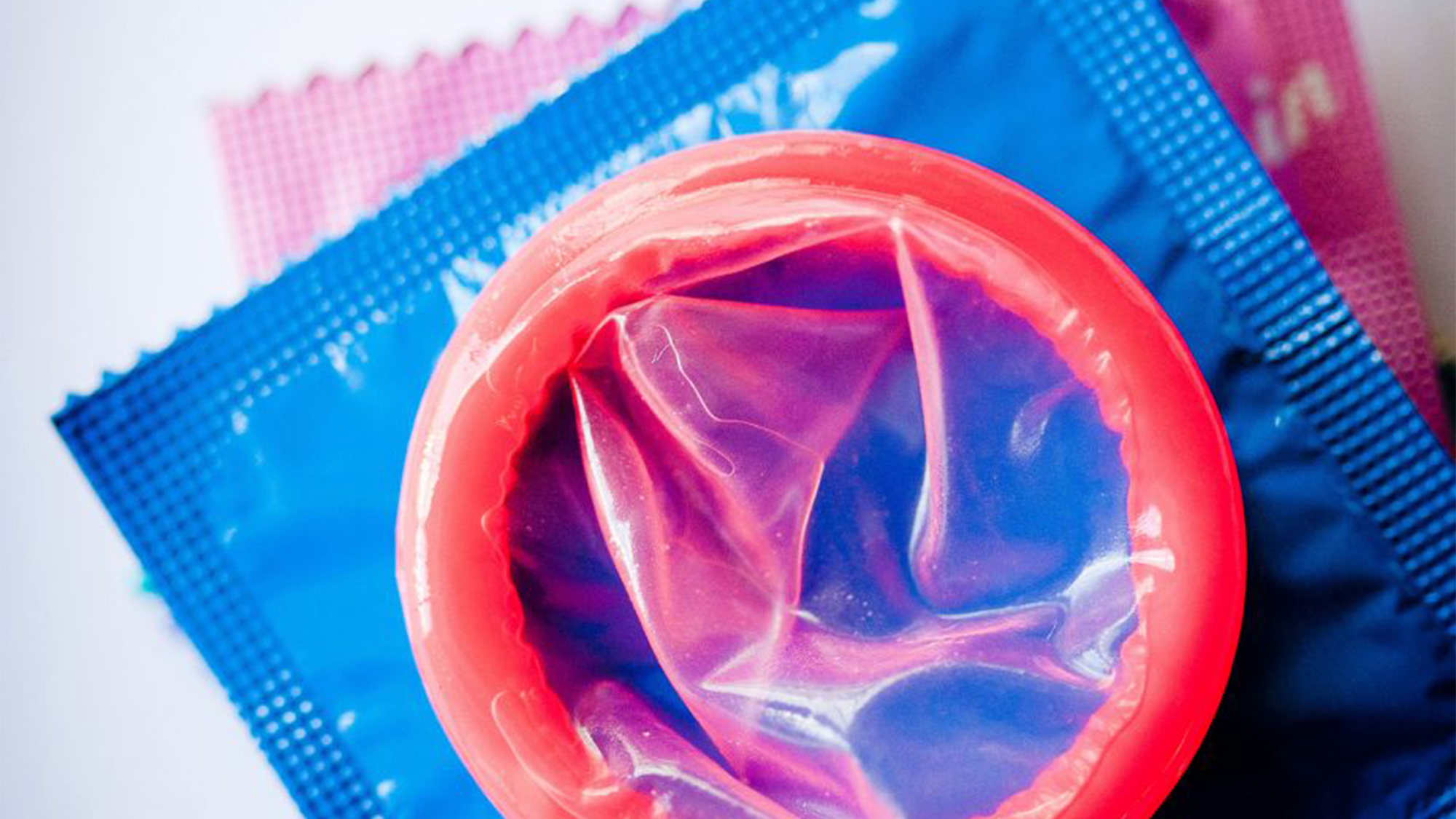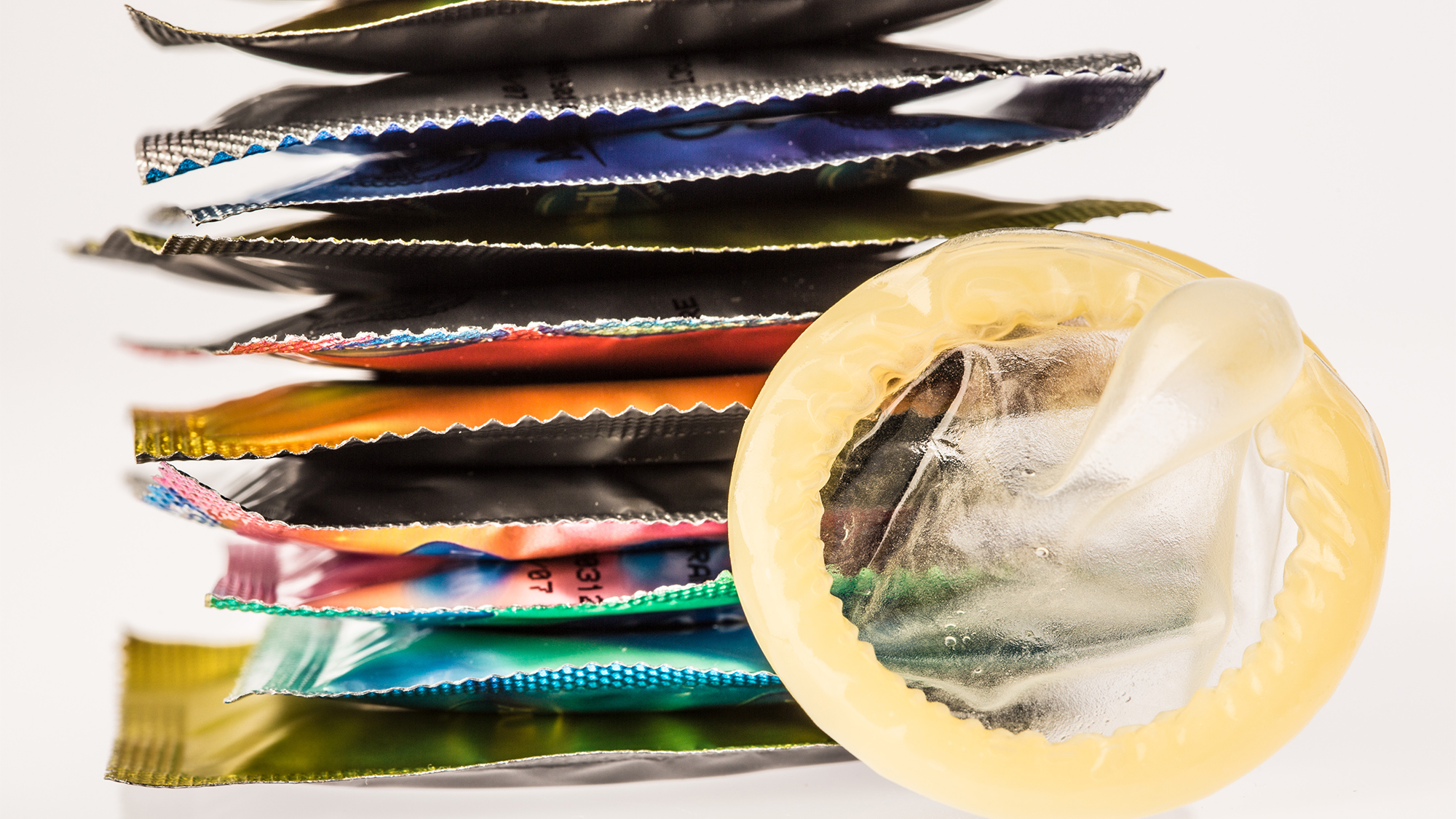Did you know this common pain was a symptom of chlamydia?
Read this, asap

Read this, asap
Words by Jadie Troy-Pryde
When it comes to STIs, it's more important than ever that we're clued up about the risks of catching an infection from a sexual partner. Cases of syphilis are at an all time high in England, and when you use this calculator to work out how many people you have indirectly slept with using protection suddenly becomes imperative - and these smart condoms become a whole lot more attractive.
But considering that chlamydia is actually one of the most common sexually transmitted infections in the UK, how much do you really now about it? Do you know what signs and symptoms to look out for? And are you clued up on how to treat it if you do catch it?
Here's everything you need to know about the STI that affects around 200,000 people in England every year.
What is chlamydia?
Chlamydia is a sexually transmitted infection (or STI) that can be passed from person to person through unprotected vaginal, anal or oral sex. It is one of the most common STIs, and the NHS reports that the majority of people they treat are sexually active youngsters under 25 years old. However, it is not an ageist condition so it's important that people of all ages are carefully when it comes to protecting themselves from chlamydia.
It is largely symptomless, which is why it's so important to get checked regularly because it can have serious implications for women later in life if left untreated. However, some people do experience symptoms so there are things to look out for if you're concerned you may have chlamydia.
Marie Claire Newsletter
Celebrity news, beauty, fashion advice, and fascinating features, delivered straight to your inbox!
What are the most common chlamydia symptoms for women?

- Abnormal vaginal discharge, possibly with an unusual odour
- Bleeding between periods or after sex
- Abdominal pain and painful/heavy periods
- Pain when urinating or during sex
- Itching or burning in or around the vagina
It is incredibly important that women are vigilant when it comes to getting checked for chlamydia as, if it is left untreated, it can cause pelvic inflammatory disease which could lead to ectopic pregnancy and infertility.
What are the most common chlamydia symptoms for men?
- A clear or cloudy discharge from the tip of the penis
- Pain when urinating
- Swelling around the testicles
- Itching or burning around the opening of the penis
When left untreated, the infection could cause swelling in the tubes that carry sperm from the testicles which may affect a man's fertility.
How can I get a chlamydia test?
A chlamydia test can be taken for free at a sexual health clinic, a genitourinary medicine clinic (GUM clinic) or at your local GP surgery. They require a urine test or a swab test, but you don't always need to have a physical examination by a nurse or doctor. Often you are provided with the kit and can return the sample, and await a call to let you know the result approximately 7 to 10 days later.
If you are under 25, you can also ask for a test at some pharmacies, contraception clinics or colleges, and it is recommended that if you fall within this age bracket that you are tested for the STI every year or every time you change sexual partner.
It is also possible to buy chlamydia kits if you would rather do this at home, however the accuracy of these has been disputed.
How do you treat chlamydia?
The usual treatment plan is a course of antibiotics which you may be required to take in one day, or over a period of a week. Whether your treatment lasts a day or a week, it's advised that you avoid sexual contact with anybody for seven days to ensure that the infection is cured and to prevent it from spreading.
Can chlamydia come back?

You can catch chlamydia more than once, and if you have already had the infection you are at an increased risk of catching it again. The NHS suggest that after contracting the STI and seeking treatment, you should return and get checked three months afterwards.
How can I avoid catching chlamydia?
The best way to prevent it is by using a condom every time you have vaginal, anal and oral sex, and to avoid sharing sex toys. Alternatively women can opt to use a dam. Make sure you are tested regularly and whenever you change sexual partner.
The leading destination for fashion, beauty, shopping and finger-on-the-pulse views on the latest issues. Marie Claire's travel content helps you delight in discovering new destinations around the globe, offering a unique – and sometimes unchartered – travel experience. From new hotel openings to the destinations tipped to take over our travel calendars, this iconic name has it covered.
-
 A day in the life of Nicola Orme, the Queens of Archive founder behind the fashion set's favourite vintage-inspired dresses
A day in the life of Nicola Orme, the Queens of Archive founder behind the fashion set's favourite vintage-inspired dressesEverything she gets up to in her 9-5
By Sofia Piza
-
 Easy Escapes: The Ned offers a decadent retreat in the heart of London
Easy Escapes: The Ned offers a decadent retreat in the heart of LondonThe Ned eclipses other London hotels with its sleek spa, extensive dining options and party atmosphere
By Lauren Hughes
-
 Isamaya Ffrench on disrupting the beauty industry and her desert island make-up bag
Isamaya Ffrench on disrupting the beauty industry and her desert island make-up bagFashion's favourite make-up artist discusses her life in expression
By Nessa Humayun